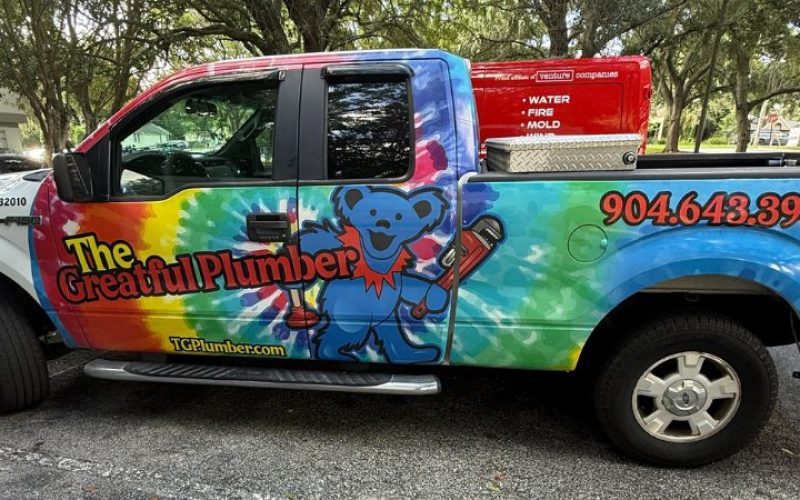As a property manager in Jacksonville, you’re constantly balancing tenant needs, operational costs, and legal obligations. When plumbing issues arise, knowing what requires immediate attention versus what can be scheduled can save you thousands in damages and keep you compliant with Florida regulations.
Here’s what we see every day: property owners and managers tend to wait until the very last minute. It’s not uncommon—it happens with almost every call we get. Most people are waiting until the very last second, and sometimes that makes things more problematic.
The thing is, between the time they notice the initial issue and when it becomes a bigger problem, it could have been resolved quicker, sooner, and cheaper if they had just called earlier.
The Florida Legal Reality: What You Must Address Immediately
Emergency Response Timeline: Florida law requires landlords to address emergency issues—such as plumbing leaks that threaten property damage or tenant safety—ideally within 24 hours.
Your Legal Obligations Under Florida Law
Florida legally requires landlords to meet certain “habitability” requirements for all rental properties, including maintaining “the plumbing in reasonable working condition.” For commercial properties, this means:
- Immediate safety threats must be addressed within 24 hours
- Essential service interruptions require prompt response to maintain habitability
- Code violations that affect tenant operations cannot be delayed
The “Band-Aid Fix” Trap We See Constantly
What happens a lot is people will do a Band-Aid fix to solve the problem immediately. That fix will work temporarily, and then we’ll be back within the month. This happens for a couple of months consecutively.
Before you know it, you have no choice but to go with the big fix. By that time, we can’t roll the price of all the other work into the new work—it’s just one big job now.
If you think you’re going to have to call a plumber anyway, you might as well just get it looked at and addressed. A small problem can become a big problem, and everything these days gets more expensive literally by the week.
Problems That Can’t Wait: The “Call Immediately” List
Water Supply Failures
Main line breaks or complete water loss:
- Affects all tenants immediately
- Creates liability for business interruption
- May violate health codes for food service tenants
- Action required: Emergency plumber call within hours
Hot water system failures:
- Critical for restaurants, medical offices, and cleaning services
- Required for basic sanitation in most commercial spaces
- Action required: Same-day service call
Sewage and Drainage Emergencies
Main sewer line backups:
- Health hazard that can force immediate evacuation
- Creates liability exposure for property damage
- May require notification of health authorities
- Action required: Emergency response within 2-4 hours
We’re there more and more often when things are backing up—that’s a sign that the bigger problem really needs to be addressed and should be addressed sooner than later.
Multiple unit drainage failures:
- Indicates main line problems affecting the building
- Can escalate to sewage backup quickly
- Action required: Emergency assessment same day
Leaks That Threaten Property or Safety
Overhead leaks affecting tenant spaces:
- Risk of electrical hazards and equipment damage
- Potential for ceiling collapse in severe cases
- Tenant liability issues for damaged inventory/equipment
- Action required: Immediate assessment and temporary fixes
Foundation or structural leaks:
- Can compromise building integrity over time
- May indicate main line failures
- Often worsen rapidly during Jacksonville’s rainy season
- Action required: Professional evaluation within 24 hours
Our Response Time vs. Your Planning Time
Our typical response time is pretty quick. It’s very rare that we’re not available to do a big job. The more common issue is that even when it becomes a big job, the property needs time to get things in order.
So again, we’re going back to this: if you fix it sooner rather than later, it’s going to be less expensive in most cases. The problem will be resolved more quickly and you’ll be less inconvenienced.
But sometimes it can wait. It really depends on the business and how they operate and what needs to happen and when and where and what the timeline looks like.
Pressure and Flow Issues: When to Act Fast
Complete Pressure Loss
Building-wide low pressure:
- May indicate main line break or pump failure
- Affects all tenants’ ability to operate
- Could signal more serious infrastructure problems
- Action required: Emergency diagnostic within hours
Localized pressure issues:
- May be early warning of larger system failure
- Can affect tenant operations (restaurants, medical offices)
- Action required: Professional assessment within 24-48 hours
The Business Disruption Reality
It’s definitely going to be cheaper if we can work around things while you remain operational versus shutting down. It’ll be cheaper for everybody all around.
We don’t typically prioritize some clients over others, but yes, we do have a certain response availability as a plumbing company. We try to go first come, first serve. Obviously there are times where there is an emergency and we have to help somebody at least get their water shut off if they’re having a major leak—those are the exceptions.
Jacksonville-Specific Urgency Factors
Climate Considerations:
In the rainy months, some commercial properties do tend to have more issues when the rain is heavier. That’s often the sign in older buildings that it’s not just an internal issue but external too—because of the age of the building, outdoor erosion and things like that can play a part in causing bigger issues underneath buildings.
- Jacksonville’s climate accelerates mold growth from water intrusion
- Any mold growth resulting from structural or plumbing issues falls under the landlord’s duty to repair and maintain
- Timeline: Address water sources within 24-48 hours to prevent mold
Building Age Factors:
- Cast iron systems more prone to sudden failures
- Mixed material connections create failure points
- Monitoring: Increased vigilance for buildings over 30 years old
The “Can Schedule Soon” Category
Non-Emergency but Important Issues
Single fixture problems:
- Individual toilet, sink, or faucet issues
- Affecting only one tenant’s operations
- Timeline: Schedule within 3-5 business days
Minor leaks under sinks:
- Contained leaks not affecting other systems
- No immediate safety hazard
- Timeline: Schedule within 1 week, monitor daily
Slow drains (single location):
- Affecting one tenant, not spreading
- No backup or overflow risk
- Timeline: Schedule within 1-2 weeks
Property Manager Decision Framework
Ask These Questions for Quick Triage:
Safety Questions:
- Is anyone at immediate risk?
- Could this cause electrical hazards?
- Is sewage involved?
Operational Questions:
- How many tenants are affected?
- Can affected tenants continue business operations?
- Is this getting worse rapidly?
Legal Questions:
- Could this violate health codes?
- Am I required to provide alternative facilities?
- Does this affect essential services?
What We’ve Learned from Years of “Emergency” Calls
We’ve seen relatively medium-size issues become much larger issues because things are not addressed in a timely fashion. You don’t always know what you’re dealing with initially, but waiting rarely makes things better or cheaper.
The pattern is always the same: small issue noticed, temporary fix applied, problem comes back worse, more temporary fixes, until finally there’s no choice but the big repair—and by then it costs much more than if it had been addressed properly the first time.
Code Compliance vs. Proactive Management
Florida Building Code Requirements:
The Florida Building Code requires commercial properties to maintain plumbing systems in compliance with applicable building, housing, and health codes. This means:
Code-Required Immediate Action:
- Sewage backups (health code violation)
- Water supply contamination
- Cross-connection issues
- Fire suppression system failures
Proactive Best Practices:
- Regular main line inspections
- Pressure monitoring systems
- Preventive drain cleaning schedules
- Annual system assessments
The Cost of Delays: Real Numbers
Emergency Response vs. Delayed Action
Emergency Response Costs:
- Higher labor rates for after-hours service
- Premium for immediate availability
- Typical range: 1.5-3x normal rates
Delay Costs:
- Tenant business interruption claims
- Property damage from water intrusion
- Health code violations and fines
- Legal liability exposure
- Potential range: 5-50x emergency response costs
The math is clear: Emergency plumbing response is expensive, but delays are almost always more expensive.
Key Takeaways for Property Managers
Trust Your Instincts: If it feels like an emergency, treat it as one initially and get professional assessment.
Call Sooner Rather Than Later: If you think you’re going to need a plumber anyway, get it looked at now while it’s still a small problem.
Avoid the Band-Aid Cycle: Temporary fixes that need repeating every month end up costing more than doing it right the first time.
Know Your Building: Older buildings and rainy season create more urgency for drainage and leak issues.
Plan for Operational Continuity: Working around your tenants’ schedules is cheaper for everyone than forcing shutdowns.
Need emergency plumbing assessment for your Jacksonville commercial property? Call us at (904) 643-3946. We understand the urgency of commercial plumbing issues and can help you determine immediate response needs versus scheduled repairs.










